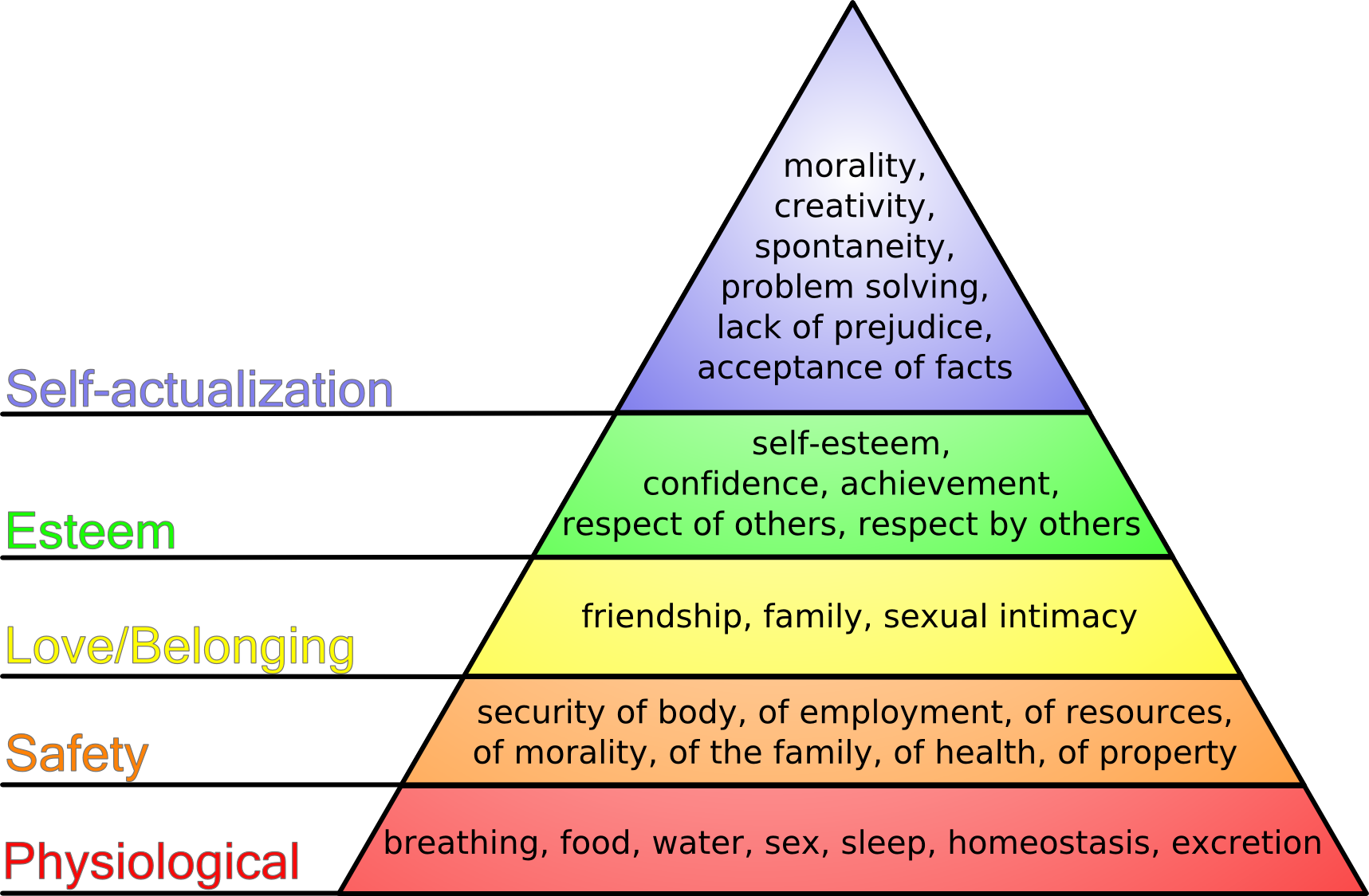
Wiki / Hierarchie
Inhaltsverzeichnis: (verbergen)
 Labyrinth (Irrgarten) |
|
Hierarchie ist allenfalls ein notwendiges |
|
Hierarchie ursprünglich: Herrschaft bzw. Ordnung der/des Heiligen,
Der Begriff Hierarchie bedeutet dem Wortsinn nach keineswegs "Herrschaft von oben nach unten", sondern "heiliges Beginnen". Frei übersetzt ist Hierarchie: heilige Ordnung bzw. Handeln nach geheiligter Tradition. Der Geist / das Heilige überstrahlt die Materie beziehungsweise das Profane.
Die Väterherrschaft (das Patriarchat) erkennt Hierarchie als Prinzip der Herrschaft von Oben nach Unten, Befehle er-
Hierarchische Ordnungen sind anzutreffen auf:
|
| ||||||||||||||||||||||||||||||||||||||||||||||||||||||||||||||||||||||||||||
| Quelle: ► Gelöschter Artikel von Hanzi Freinacht, dänischer politischer Philosoph, Geschichtswissenschaftler, Soziologe, Autor, Cordula Frei, Übersetzerin, Was ist das Modell der hierarchischen Komplexität?, präsentiert von der deutschen online-Zeitschrift Integrales Forum, August 2019 |
| Reference: en.Wikipedia entry ► Model of hierarchical complexity (MHC); subheading ► Stages of hierarchical complexity |
| Siehe auch: ► Stufenmodelle |
| See also: ► Step Models |
durch Versklavung der Frauen besiegter Stämme
Das holprige Deutsch des fremdsprachigen Autors wurde hier leicht nachkorrigiert.
|
Insights
Within levels, heterarchy – between levels, holarchy

Among developed countries, the healthiest and happiest aren't those with the highest incomes but those with the most equality.
The heterarchical relationship between coach and coachee
Note: From 2006-2010 Ardagh used to promote the Indian Deeksha movement until he silently retracted from it.1
|
Literary quote
Article on the conference by the Canadian TV station TVO, program TVO Parents, Ontario
Article on the conference by the Canadian TV station TVO, program TVO Parents
Sermon on the Mount (NT): Jesus, the alpha (grapevine) – Followers, dependents (vines)
Jesus: "You will do bigger things than I." Bridging alpha and beta aspects: Spiritually matured dependents will eventually outgrow the Alpha person.
| ||||||||||||||||||||||||||||||||||||||||||||||||||||||||||||||||||||||||||||
| Source: ► Blog article by Hanzi Freinacht, Danish political philosopher, historian, sociologist, author, What Is The Model of Hierarchical Complexity?, presented by the Danish independent publishing company and think-tank Metamoderna, 8. September 2017 |
| Reference: en.Wikipedia entry ► Model of hierarchical complexity (MHC); subheading ► Stages of hierarchical complexity |
| See also: ► Step models |
| Siehe auch: ► Stufenmodelle |
Links zum Thema Hierarchie, Ordnungen und Unterordnung / Hierarchy, obedience and ordersLiteraturLiterature (engl.)
Externe Weblinks
Holonbetrachtung aus der 1., 2. und 3. Person bzw. Subjekt/Objekt
Holone im Innen/Außen unterliegen der Unschärferelation
Universelle Wechselwirkungen zwischen Holonen
External web links (engl.)
Audio- und VideolinksDokumentationen und Spielfilme
Als die Pavianherde von Keekorok eine Tragödie ereilte, war es kein Zufall, welche Tiere dabei umgekommen sind. Alle aggressiven Alpha-Männchen starben, diejenigen, die wenig soziale Kontake hatten und obendrein eine schwache Anbindung an die Herde. Sie hatten sich nicht die Mühe gemacht, Kontakte zu knüpfen und zu pflegen. Als nun doppelt so viele Weibchen wie Männchen vorhanden waren, veränderte sich das soziale Klima in der Paviangruppe ganz erheblich. Das verbliebene Drittel der Pavianmännchen gebärdete sich nicht wie die aggressiven Idioten. Vielmehr waren es "gute Jungs", die nett zu den Weibchen waren und sozial gut eingebunden waren. Männliche Neuankömmlinge erfuhren ein Sozialtraining, demzufolge ihr aggressives Verhalten in den Hintergrund trat. Ab Minute 3:59
Audio and video links (engl.)
Article on the conference by the Canadian TV program TVO Parents
Documentaries and movies
When tragedy hit the Keekorok troop of baboons it wasn't random who died and who stayed alive. Every aggressive alpha males died, those who were not particularly socially connected, socially affiliative, and didn't spend time grooming and socializing. The atmosphere of the group had been transformed – now with twice as many females as males, and the remaining males were not aggressive jerks, but "good guys", who were nice to the females and very socially affiliative. Starting minute 3:59
|
Englisch Wiki
Hawkins
1 Article by compiled by Timothy Conway, Ph.D., Severe Problems with "Bhagavan Kalki's" Deeksha Oneness Movement, presented by the publication Enlightened Spirituality, April 2008
''Freddy speaks out! On Kalki Bhagavan, presented by the website Deeksha Danger, undated ⇑